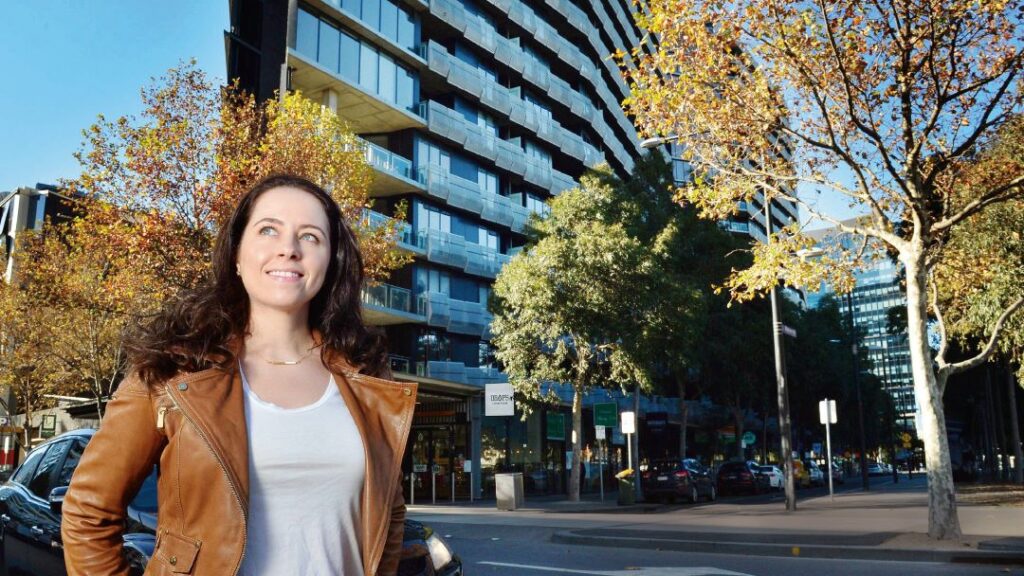Buying a home isn’t advanced surgery, but purchasing property in the hope of making a pretty penny can be a particular science.
An increasing number of everyday Australians are engaging a professional buyer’s agent, also known as a buyer’s advocate, to help them purchase their first place, their dream home or an entire property portfolio. Once a tool for cashed-up, time-poor city slickers, these real-estate professionals are being used as one weapon in an arsenal of tricks that buyers are harnessing to climb today’s property ladder.
“People lean on buyer’s agents for a range of reasons and I think that’s what a lot of consumers neglect to think about. Gone are the days of someone rich or busy meeting a buyer’s agent because they haven’t got the time,” explains Cate Bakos, president of the Real Estate Buyers Agents Association of Australia (REBAA).
“One of the main reasons people engage an advocate is simply to deal with sales agents. A lot of people feel out of their depth or just don’t like dealing with agents. We also speak their language; we can frame an offer in the right way, know when to put in an offer – and when to wait,” she says.

Bryce Holdaway, buyer’s agent and partner at Empower Wealth, television presenter and podcaster, says despite prices softening in major markets, buyer’s agents still play their part because it’s not all about negotiating prices down.
“In bigger markets like Melbourne, Sydney and, to a certain extent, the hotter parts of Brisbane and Adelaide, if you find a good property you have to move very quickly to secure it. That’s part of what a buyer’s agent will bring to the table,” he says. “If you’re not in a position to move quickly, you’ll keep losing properties. You’ve got to be able to respond quickly and lean on your buyer’s agent; because a whole heap of emotions are going to come up. They’ve done it all before, they’re experienced.”
Although there is no industry standard, REBAA suggests the average buyer’s agent charges approximately 2 per cent of the purchase price. However, upfront fixed fees can be negotiated.
The job at hand
Bryce says the cost of not hiring an advocate can go beyond the fee. “A lot of people think ‘What value does a buyer’s agent provide?’. We would say four things, really. Number one is we buy the right house in the first place. Number two is we help avoid procrastination. And number three is we make sure you don’t pay too much. Finally, we make sure you tap into our network – that in itself can save an enormous amount of time.”
Cate agrees and adds that a good advocate is an analyst, not a shopper. “People wrongly assume we’re walking through glamorous houses all the time; it’s fair to say less than a quarter of our time would be walking through houses. The other three quarters would be assessing and conducting due diligence, talking with clients and dealing with agents,” she says.
Cate notes that another misconception is that they swoop in and take over house-hunting duties from start to finish. “A lot of buyer’s agents have varying types of service. I certainly have different tiers because I enjoy the client being engaged in the process. Consumers should interview their buyer’s agent to find out how to get the best out of them. Many people want to learn and be involved; they just need someone to hold their hand to make sure they don’t make a mistake.”

Escape from the city
The number of buyer’s agents operating in Sydney, Melbourne and Brisbane has boomed over the past decade as prices increased and buyers suffering FOMO sought help. Today their popularity has grown with investors as well as sea- and tree-changers looking to buy beyond the city limits.
As co-host on the ABC series Escape From The City, Bryce says there’s no substitute for having a helping hand on the ground. “Local knowledge is something you absolutely need. Most people think about the price of a buyer’s agent but don’t consider what the value actually is. If you get it wrong when buying, it’s a high-value transaction. Trying to change it will set you back significantly.”
Cate agrees that buyers who are unfamiliar with an area should seek out specialist knowledge.
“If a buyer’s agent is based in a particular region, and that’s their hometown, they would be very familiar with the selling agents and understand what locals value and want.”
Offloading a regional property can often take longer than one with a metropolitan address. This is especially true if an owner has bought in the wrong part of town. “Also, its capital growth might have been low compared to something else in the same town. So you just want someone to help you future-proof your decision,” says Cate.
And, as Bryce says, going it alone can take an emotional and financial toll. “The costs rack up. Imagine paying for accommodation and flights and taking annual leave just to go house-hunting, because generally you’re not going to buy a property in the first week. If you’re looking from the city, it’s all listings-based, so you might not see it all. Even to get the feel of a place you’ve got to go a few times. People totally underestimate the emotional cost,” he explains.

Best-kept secrets
Call them off-market, pre-market or secret listings, they are one of the things buyers can tap into by using an advocate. While Cate says it’s true they do have insight on homes that aren’t advertised, she adds that buyers should beware.
“It’s one of the most common questions I get asked. People probably place too much emphasis on it – they think you’ve got a secret property portal. We can reach out to an agent and very quickly get off-markets, but not all off-markets are good. Unfortunately, there are opportunistic sellers and agents who will flog an off-market home at a premium just to get the sale. You’ve got to assess whether it’s a genuine off-market with a motivated vendor. Or will you pay a premium just to have a run at the property without competition?”
Who needs a buyer’s agent?
Emilia Rossi, a marketing strategist and co-founder of online wedding marketplace Capriess, says despite her and her husband Socrates having a solid financial IQ, they still saw the value of investing in a buyer’s advocate.
“We’ve got very particular goals we want to achieve in the next five, 10, 15 years. It just made sense getting experts on board to help us. We’re very much numbers- and data-driven people. It actually took us two years to do our due diligence and find our advocate at Empower Wealth,” she says.
Spending money on a buyer’s agent when you’re trying to make money might seem counterintuitive, but Emilia says the financial logic is there. “They do save us money in the long run. They also take the stress out of purchasing. Without them, we’d have to go and do the research – this way, we don’t even need to lift a finger. They’ve got their team, they bring what we need to the table and we just have a look. Plus we can tap into their expertise – they live and breathe this stuff.”
She says her buyer’s agent has suggested investment properties in both metropolitan and regional areas. “I was a bit skeptical of buying outside of where I knew. But as long as they have the numbers and the data to back up the historic trends, I’m confident.”
Emilia adds that the additional cost of a buyer’s advocate should quickly pay for itself. “They’re doing you a favour, because if you catch that first property with exceptional capital growth, you’re then able to leverage and then purchase your second or third or fourth. If you mess up that first one, you’re stuck. That’s what I think people trying to get into the market overlook,” she explains. “I just sold two dud properties – ones that I’d bought without that expert advice – and I was very lucky I didn’t lose any money. The point is, if I hadn’t spoken to Empower Wealth, I’d be in a very different position right now.”
READ MORE: Australian property: buying off the plan

